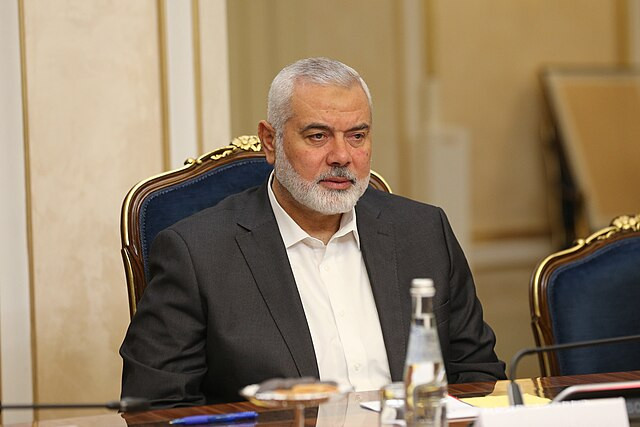In a dramatic escalation of regional conflict, Hamas leader Ismail Haniyeh was killed by a predawn airstrike in Tehran on Wednesday. Iran and the militant group immediately blamed Israel for the assassination, which threatens to ignite further hostilities in an already volatile Middle East. Iran's supreme leader, Ayatollah Ali Khamenei, vowed revenge against Israel.
"This criminal and terrorist Zionist regime martyred our dear guest in our home and made us sad, but it also prepared a harsh punishment for itself," Khamenei said in a statement. He declared that Iran considers it its duty to "take revenge" for the killing of Haniyeh, who had been attending the inauguration of Iran's new president, Masoud Pezeshkian, in Tehran.
The assassination occurred just hours after Israel carried out a rare strike in Beirut, targeting a top Hezbollah commander, further intensifying the conflict. Hezbollah, which denied involvement in a recent deadly rocket attack in the Golan Heights, reported that it was still searching for the body of Fouad Shukur, the targeted commander.
There was no immediate comment from Israel, which has pledged to target Hamas leaders following the group's October 7 attack on southern Israel. Israeli Prime Minister Benjamin Netanyahu convened a situation assessment with defense officials following the assassination. In a statement, Israeli Defense Minister Yoav Gallant did not mention Haniyeh's killing but said, "We are preparing for all possibilities."
The assassination of Haniyeh, Hamas' top political leader, could derail ongoing negotiations for a cease-fire and hostage release deal in Gaza, which U.S. mediators had reported were making progress. U.S. Secretary of State Antony Blinken, visiting Singapore, said, "This is something we were not aware of or involved in," emphasizing the importance of continuing cease-fire efforts.
In Tehran, Haniyeh's death has prompted a strong reaction. The Iranian Revolutionary Guard warned that Israel will face a "harsh and painful response" from Iran and its regional allies, known as the "Axis of Resistance," which includes Hezbollah, Shiite militias in Iraq and Syria, and the Houthi rebels in Yemen.
Lebanon's Foreign Minister Abdallah Bou Habib condemned the Israeli strike and announced plans to file a complaint with the United Nations. "We were not expecting them to hit Beirut and they hit Beirut," he said, expressing hope that Hezbollah's response would not trigger further escalation.
The assassination also raises the specter of a broader regional conflict. Earlier this year, Israel and Iran came close to direct confrontation after a series of strikes on each other's territories. International diplomats are now deeply concerned that this latest incident could spark a wider war in the Middle East.
Haniyeh had been living in exile in Qatar since 2019 and was in Tehran for the inauguration of President Pezeshkian. Iranian media showed him smiling and clapping at the ceremony alongside leaders from Hezbollah and the Palestinian Islamic Jihad. Hours later, the airstrike hit a residence he used in Tehran, killing him and one of his bodyguards.
The impact of Haniyeh's assassination may be profound, not just for Hamas but for the broader regional dynamics. While Hamas can still operate within Gaza and fire rockets into Israel, the group's capacity to escalate attacks in retaliation remains uncertain. The greater threat may come from Iran and its allied militias, which have already shown willingness to launch attacks against Israel and U.S. bases in the region.
The U.S. government has pledged to help defend Israel if attacked, with U.S. Defense Secretary Lloyd Austin maintaining hope for a diplomatic solution. "I don't think that war is inevitable," Austin said. "I think there's always room and opportunity for diplomacy, and I'd like to see parties pursue those opportunities."






